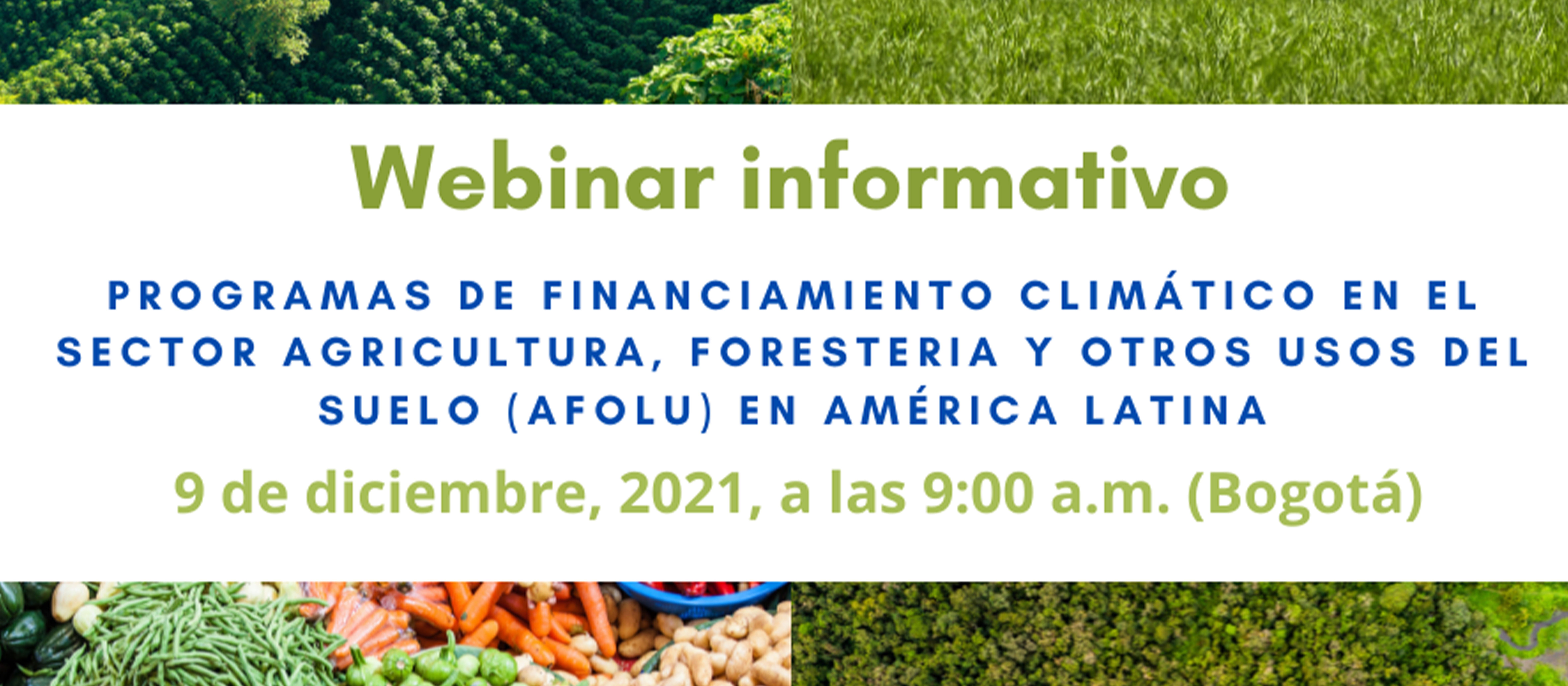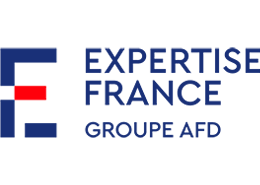International and multilateral development agencies, development banks and an accreditation body explain how they work.
The EUROCLIMA+ programme, through German International Cooperation (GIZ), Expertise France (EF) and the French Development Agency (AFD), held the webinar Climate finance programmes in the AFOLU sector (Agriculture, Forestry, and other land uses) in Latin America. During the event, which was attended by agencies accredited by the Green Climate Fund, the Adaptation Fund, the Global Environment Facility (GEF) and other funds dedicated to international climate finance, information was provided about the offer of some institutions present in Latin America, answering key concepts about the offer, requirements and awarding processes.
The initiative to organise the webinar arose after the interest shown during the event "Latin America seeks finance for the climate resilient transformation of its agricultural sector", held in the EUROCLIMA+ Pavilion at the recent Conference of the Parties (COP) of the United Nations Framework Convention on Climate Change (UNFCCC), held in Glasgow, to link the demand and supply of climate finance. In this regard, the webinar "Climate finance programmes in the AFOLU sector in Latin America" facilitated the meeting between key actors of the AFOLU sector in Latin America seeking funding for projects focused on the implementation of the NDCs of their countries, with entities accredited by the Green Climate Fund (GCF), the Adaptation Fund (AF), and the Global Environment Facility (GEF), which are seeking projects in line with the objectives and strategic lines of their programmes to be financed.
Also participating as stakeholders in climate finance were the French Development Agency (AFD) and VERRA, an agency that has developed a set of global standards and certification frameworks to ensure that finance is well channelled to high environmental impact activities.
The webinar also addressed the implications of COP26 for the AFOLU sector. It was attended by more than 100 people, with a fully gender-balanced participation and outstanding interest from both the public and private sectors.
Video of the webinar
Implications of the COP26
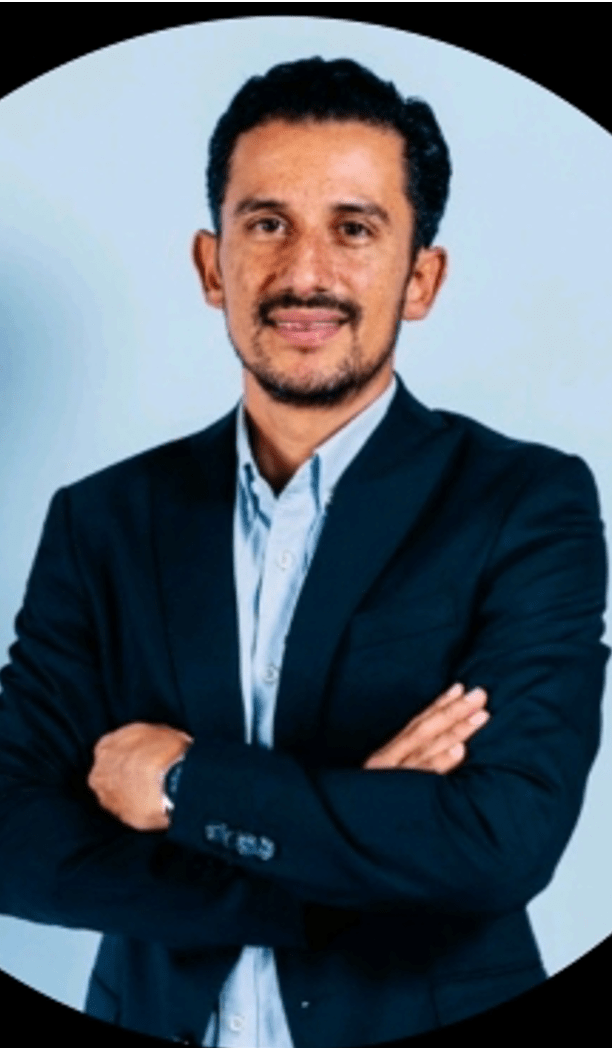 |
Mauricio Luna (GIZ)
The meeting started with an overview of the implications of COP26 - which marks five years since the milestone of the Paris agreement - for climate finance in the AFOLU sector, by Mauricio Luna, GIZ Regional Advisor for EUROCLIMA+.
Undoubtedly, finance will continue to be one of the main issues on the international climate agenda, he said, in order to reach the pending goal of 100 billion per year (commitment of contributions to climate finance by developed countries 2020-2025) and to establish a new goal starting in 2025 with a new floor of financial groups.
On the other hand, forests and agriculture had an important presence at COP26, mainly in the high-level announcements (Glasgow Leaders’ Declaration on Forests and Land Use) and indirectly in the agenda of the negotiations. Finally, there was greater integration of agriculture, forestry and other land use issues, as well as their financing (e.g. zero deforestation value chain commitments). Commitments included governments and large private sector companies that move goods around the world.
Entities facilitating access to climate finance for the AFOLU sector in Latin America
This was followed by a panel of experts from entities accredited by international funds to facilitate the financing of climate projects, including international or multilateral development agencies, development banks and an accrediting entity. Together they aim to contribute to the development of high-impact actions to address today's most urgent environmental problems.
The role of FAO – the United Nations Food and Agriculture Agency
Maria Mercedes Proaño, Climate Finance Officer, Food and Agriculture Agency of the United Nations (FAO), gave an account of FAO's specific partnership with the GEF and the FVC, the FVC being a mechanism of the United Nations Framework Convention on Climate Change (UNFCCC).
FAO's strategy focuses on adaptation and mitigation in the agricultural sectors, and as the implementing agency of the funds, it supports countries in accessing this funding, which is accessible only to governments. The key criteria common to both funds are: that the project effectively responds to national priorities, as expressed in the NDCs and in the country's biodiversity and climate change frameworks; that the project promoters take ownership of the initiative; and that the required co-financing is in place. Private sector involvement is essential and the GEF may be able to fund "pilots" that can then be "scaled up" by the FVC.
Possibilities with IICA – the Inter-American Institute for Cooperation on Agriculture
For her part, Kelly Witkowski, Programme Manager for Climate Change and Natural Resources at the Inter-American Institute for Cooperation on Agriculture (IICA) presented the opportunities, requirements and processes for financing through this international technical cooperation agency, which has 34 member countries.
IICA offers cooperation opportunities as a newly accredited agency with the FVC, as an executing agency of the GEF, and it is in the process of accreditation with the AF. Eligibility requirements for financial cooperation include the following criteria.
- having low levels of environmental and social risks;
- having a good institutional articulation and coordination between the agriculture and environment sectors;
- in the case of the FVC, it is a requirement that the thematic area for which funding is requested is linked to those covered by the FVC, such as increasing resilience in the livelihoods of populations and communities, on the one hand, and health, food and water security and ecosystems and ecosystem services, on the other.
- reduce emissions related to energy generation and access and forest and land use;
- that the issue is also included in the country's programme or priorities;
- and finally, an alignment with IICA's Medium Term Plan and its strategic indicators.
To initiate any request, IICA provides countries with a list of representatives to contact.
Offer from CAF - the development bank of Latin America
The CAF is a multilateral financial institution that supports the sustainable development of its shareholder countries and regional integration. It serves the public and private sectors, providing multiple financial products and services to a broad portfolio of clients, consisting of the governments of its shareholder countries, which include 19 countries in Latin America, the Caribbean and Europe, financial institutions and public and private enterprises.
Martha Castillo, CAF's Senior Climate Change Executive, highlighted CAF's commitment to increase its green finance indicator and gave an account of its current offer of funds, both mitigation and adaptation, which includes:
- the financing of projects and programmes of concrete adaptation measures for developing countries participating in the Kyoto Protocol such as the Adaptation Fund agency;
- the GEF's role as a financial mechanism in relation to the conventions on climate change, biodiversity and desertification, wetlands, mercury;
- the mandate to promote low-emission and climate-resilient development in developing countries through the FVC.
For projects to become a reality, each process takes time, as it involves different entities and requires the reconciliation of criteria at different levels, such as the Sustainable Development Goals, the NDCs and the national credit standards of each country.
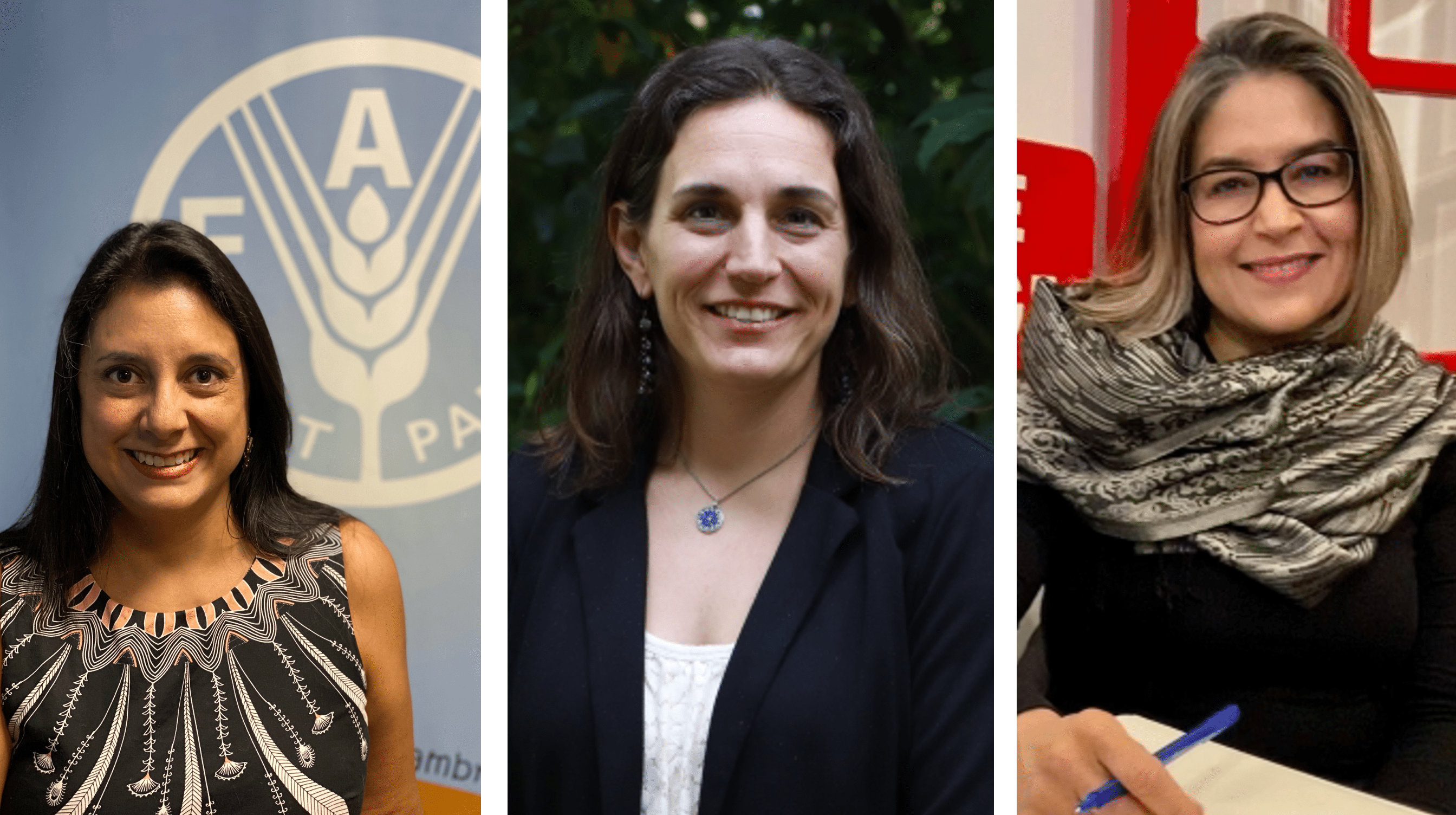 |
Kelly Witkowski (Climate Change and Natural Resources Programme Manager, IICA), Maria Mercedes Proaño (Climate Finance Officer, FAO), Martha Castillo (CAF Senior Climate Change Executive)
Mobilising resources with CABEI - the Central American Bank for Economic Integration
In the Central American region we find the CABEI, founded in 1960 with the objective of promoting the integration and balanced economic and social development of this region. It is also accredited with the FVC, the FA and the European Union.
Miguel Méndez, head of Strategic Alliances and International Cooperation, explained the investment criteria and the approval process before the FVC and explained the CABEI project cycle, an entity, he said, "with a high level of commitment to climate change mitigation and adaptation in the region". Méndez highlighted as key points: the bank's capacity to mobilise resources and to establish alliances with other actors that can provide support from a technical or implementation point of view, such as the FAO, and its efforts to train countries in the presentation of investment project proposals in order to make them bankable. In recent years, he concluded, the issuance of green bonds has also increased.
The agricultural and rural finance label "AGREENFI" of the AFD Group - French Development Agency
For the French Development Agency (AFD), the central objective is to promote ecological sustainability and a social justice approach. The agency intervenes in 13 countries and has the AGREENFI seal, a financing system for banks that intervene in the rural sector. One of the agency's characteristics is that it carries out training activities for both public and private actors - the final beneficiaries of financing - as well as financial institutions, in order to stimulate demand for as well as the supply of financing.
Claude Torre, Project Officer at AFD's Rural Development, Agriculture and Biodiversity Department explained what the AGREENFI label consists of, how the AFD project cycle works, from identification to evaluation and the requirements for applying. These include: that the applicant entity has the commitment to implement a green and/or social strategy and achieve environmental and social impacts, and that there are human resources dedicated to the project. AFD funds directly or through the states and, according to Torre, the fact that AFD has non-reimbursable resources, such as the EU's Latin America Investment Facility (LAIF), the FVC or AFD's own grant for technical assistance, is indispensable for its solvency.
AFD is also working with FAO on a digital Monitoring, Reporting and Verification (MRV) project to measure impacts and it has offices in each country of intervention.
VERRA - standards for channelling finance into high-impact activities
VERRA is a US-based non-profit organisation, established in 2007, which has developed a set of global standards and certification frameworks to ensure the proper channelling of finance towards high environmental impact activities. Angelo Sartori, VERRA's Director of Regional Outreach, gave an account of those standards associated with the land use sector, in particular carbon credits in the carbon market environment. The VCS (Verified Carbon Standard) seal is the best known of these.
The carbon credit market brings together supply: project proponent, project developers and communities, and demand: corporations, the financial sector and other buyers. VERRA's role is to verify that projects meet technical and administrative requirements and are environmentally and socially acceptable for entering the market. In the AFOLU case there are also standards linked to climate, biodiversity and community and the Sustainable Development Goals.
Carbon credits, Sartori said, are a transition tool towards a decarbonised economy and provide flexibility, but they must be part of a broader strategy. Any entity must first measure its own carbon footprint, put in place all possible mechanisms to reduce it, and only then seek the external solution - a credit on the carbon market: "it is not a one-size-fits-all solution, nor a licence to pollute," he said.
Demand for carbon credits, mainly from projects that include Nature-based Solutions (NbS), has steadily increased since 2017 and a similar trend is projected for the future. Latin America has been a global benchmark for the development of forestry and other land use projects to generate carbon credits. Another important issue is that investors and end buyers of credits are generally looking for NbS projects where it is feasible to highlight non-carbon benefits.
The meeting ended with a series of questions to the panellists and was closed by Andrea Schloenvoigt, senior technical expert at Expertise France. Listed below are the resources available for accessing all the details.
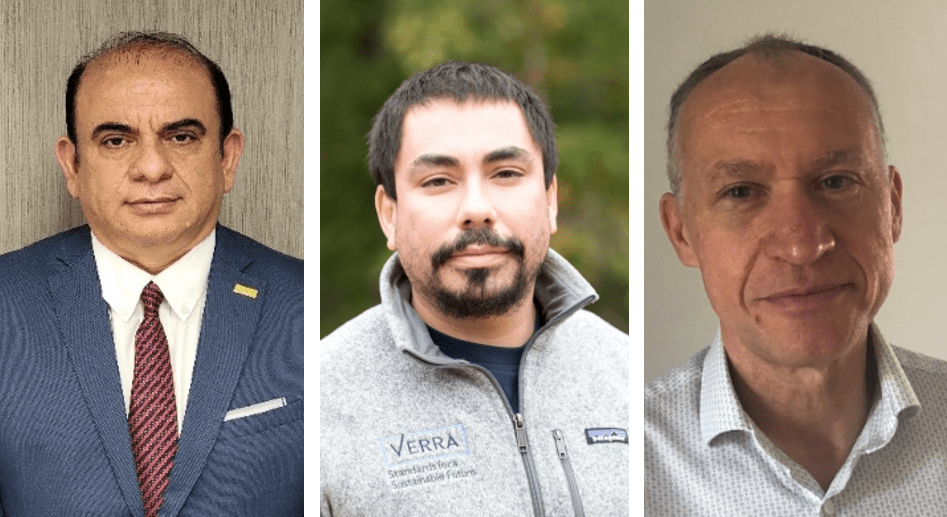 |
Miguel Mendez
(Head of Strategic Alliances and International Cooperation, CABEI), Angelo Sartori (Director of Alcance Regional, VERRA),
Claude Torre (Project Officer, Rural Development, Agriculture and Biodiversity Department, AFD)
More information
Presentation of Mauricio Luna (GIZ)
Presentation of Maria Mercedes Proaño (FAO)
Presentation of Martha Castillo (CAF)
Presentation of Witkovski (IICA)
Presentation of Miguel Mendez (CABEI)
Presentation of Claude Torre (AFD)
Presentation of Angelo Sartori (VERRA)
This email address is being protected from spambots. You need JavaScript enabled to view it.

